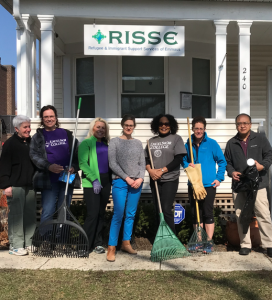What Are Personality Tests?
Personality tests are used for research and job placement but more often for personal entertainment. The good news is that the evidence-based personality tests are highly accurate when used in an appropriate manner. The bad news is that many personality tests the average person encounters are often used in ways that are not only inappropriate but also risky. Reliable tests can be developed around a faulty assumption, producing invalid results. Web-based tests should be labeled “for entertainment purposes only.” Unfortunately, netizens using the test results in making serious decisions on careers or relationships may end up heading in the wrong direction.
Common Personality Tests
Two well-known personality tests used in research and career planning are the Myers-Briggs Type Indicator and the Big Five personality test. Both tests are accurate measures of personality as defined by the underlying personality theory of each. The question the test user has to ask is, “do I accept the underlying theory?”.
Myers-Briggs
The Myers-Briggs Type Indicator was developed based on an approach to personality derived from portions of the Swiss psychologist and psychiatrist Carl Jung’s analytical psychology. Jung proposed all people could be described in relation to three sets of dichotomies: extraverted/introverted, sensing/intuition, and thinking/feeling. One more dichotomy, judging/perceiving was added by Katharine Cook Briggs and her daughter Isabel Briggs Myers who were the first researchers to successfully develop a measure of the Jungian personality. With four traits having two possible levels, a total of sixteen personality types arises. As a dichotomy, each trait has no middle ground; you are on one side or the other. It is interesting that the classification of these sixteen types has been comprehensive enough to satisfy most research questions related to personality. Still, the traits for most people would be best described on a continuum rather than a dichotomy. Relying on a continuum for each trait would result in an infinite number of personality types. Researchers have investigated measuring these descriptors as continuous measures rather than as dichotomies but found no practical improvement in results. Many of the continuum-produced types would have little distinction from the recognized sixteen types.
Big Five
The Big Five is a measure of personality perceived as a collection of relatively unchanging traits. These traits taken as a collection describe a person’s personality. Researchers have accepted and promoted trait theory in recent years, but the theoretical concepts are not new. Trait theory was established early in the 20th century but ignored for decades. Researchers have noted measuring traits can effectively predict a person’s success in school or on the job. However, predicting problems without offering solutions is little more than supporting self-fulfilling prophecies. The most practical use of Big Five tests has been found in helping workers adapt to school or jobs.
How are Personality Tests Used?
Personality tests can be misused. A company may expect that certain positions require a particular personality characteristic. Whether they hire a consultant or work in-house to develop a test, the test would be designed to identify that desirable characteristic in employees. If the expectation is false, the test might be reliable but not valid. One major retailer used an in-house test to determine which applicants would make the best sales associate. The test involved a series of statements to which the applicant responded agreement on a scale of 1 to 5. The foundational concept behind the test was that a sales associate should be emphatic. Thus, only those who consistently chose 1s and 5s (no matter the statement) were selected for further recruiting. Choosing the extremes demonstrated the desirable trait “being emphatic,” so the test was reliable. However, the concept of desiring an emphatic sales force proved to be faulty when the company found too many of these recruits arguing with customers. An established test such as the Myers-Briggs or the Big Five could similarly be misused if the results are used to identify applicants for a position based on a personality trait rather than on actual competencies. For example, anyone pursuing the field of purchasing agent (in any field) requires the same competencies regardless of personality. However, some companies expect a certain personality for a purchasing agent who may be the only representative of the company among distributors. A newcomer seafood business wanted to look tough in front of the perceivably gruff fishermen and hired a gruff purchasing agent who did not have the demonstrated competencies. If the company had used a personality test, they would have looked for results corresponding to gruffness. The test would be efficient but used in an inefficient manner. A more appropriate use would be to identify personality traits that are more likely to support the necessary competencies.
The root word for personality is the Latin word persona which is the mask that actors used to wear. What we portray to our audience every day is our persona, suggesting the cognitive influence on personality. When we think about the manner of presenting ourselves, we can change how people perceive us by wearing a mask and playing to the audience. However, the basic manner for interacting with the world under situations where one presents a true self is what is thought of as personality and what is measured by those tests. One’s real personality is made up of meaningful, defining personal experiences throughout life with some distinct genetic component represented by temperament in early childhood. Everyone takes different paths in developing personality. Still, it is fascinating how personality tests demonstrate the similarities among us all. We just need to take off our masks every once in a while. If you are interested in learning more about the liberal arts, check out our Associate Degree in Liberal Arts.

